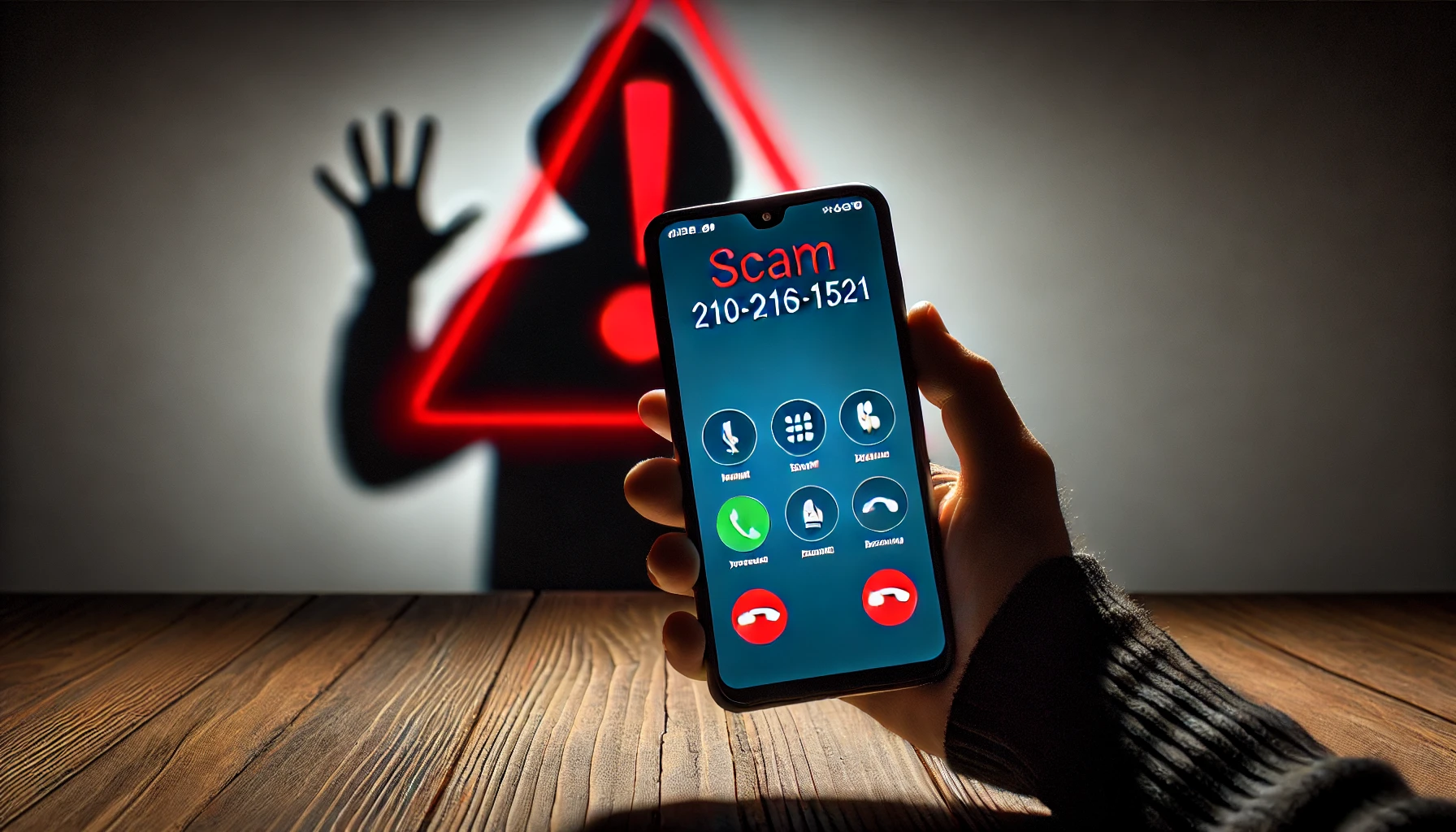Ever received a suspicious call from 210-216-1521? If yes, you’re not alone! Calls from this number have been linked to numerous scams. But don’t worry, we’ve got you covered with everything you need to know about these pesky calls and how to protect yourself. In this guide, we’ll break down the who, what, and why of the 210-216-1521 scam, all while keeping things light-hearted and informative—because who says staying safe can’t be fun?
What is the 210-216-1521 Scam?
The 210-216-1521 scam is one of those annoying robocalls that pretend to be something they’re not—usually posing as legitimate businesses, government officials, or tech support agents. In reality, they’re after one thing: your personal information. Whether it’s trying to scare you into believing you owe money or offering a too-good-to-be-true deal, these calls are all about deception.
But here’s the thing—if it sounds fishy, it probably is! Don’t let their trickery get the best of you.
How Does the 210-216-1521 Scam Work?
These scammers are sneaky, but we’re onto them. Typically, the 210-216-1521 scam works in a few steps:
- The Call: It starts with a ring from a seemingly normal number, but there’s nothing normal about it.
- Impersonation: They might claim to be from your bank, the IRS, or even tech support, trying to sound as official as possible.
- Urgency: Then comes the kicker—they’ll make you feel like you need to act immediately. They might say your account has been hacked or you owe a fine. (Spoiler alert: you don’t.)
- Request for Information: Finally, they’ll ask for your personal details or even demand money in the form of gift cards. Red flag alert!
Signs of a Scam Call
Okay, so how can you tell if a call is legit or a scam? Here are some tell-tale signs:
- Unsolicited Calls: If you weren’t expecting the call, be cautious.
- Demands for Personal Info: Legit organizations won’t ask for sensitive data over the phone.
- Urgency & Threats: If they’re pushing you to act fast, it’s probably a scam.
- Too-Good-to-Be-True Offers: Like free vacations or lottery wins you never entered.
By keeping these red flags in mind, you’ll be one step ahead of the scammers.
What to Do If You Receive a Call from 210-216-1521
So, the phone rings, and it’s 210-216-1521—what now?
- Don’t Panic: These scammers rely on fear. Stay calm.
- Hang Up: No need to engage. The sooner you end the call, the better.
- Block the Number: Use your phone’s call-blocking feature to stop future calls.
- Don’t Share Information: Even if they try to scare you into giving out personal details, don’t fall for it.
How to Protect Yourself from Phone Scams
Staying safe from scams like the 210-216-1521 one is easier than you think! Here are some simple yet effective tips:
- Use Call-Blocking Apps: Apps like Hiya and Truecaller can help block known scam numbers.
- Avoid Sharing Personal Details Over the Phone: If it’s important, they’ll send you a letter or an email.
- Be Skeptical: If something feels off, trust your gut.
- Educate Yourself: Familiarize yourself with common scam tactics to stay one step ahead.
Legal and Financial Consequences of Falling for Scams
Unfortunately, scams like the one from 210-216-1521 can have serious consequences. Here’s what might happen if you fall for it:
- Financial Loss: Scammers might steal money from your bank account or trick you into paying bogus fines.
- Identity Theft: With your personal info, they could open credit lines or loans in your name.
- Stress and Hassle: Dealing with the aftermath can be exhausting, so prevention is key!
How to Recover If You’ve Been Scammed
Let’s say you’ve been scammed. First off, don’t beat yourself up—it happens to the best of us! Here’s what you should do next:
- Contact Your Bank: If you’ve shared financial details, let your bank know immediately.
- Report Identity Theft: Contact authorities to report potential identity theft.
- Change Your Passwords: Update any passwords that might have been compromised.
- Monitor Your Credit Report: Keep an eye out for any suspicious activity.
Frequently Asked Questions (FAQ)
- Why do I keep getting calls from 210-216-1521?
Scammers target random numbers, so you’re not alone. It’s best to block them and report the number. - What should I do if I accidentally gave out my information?
Immediately contact your bank or credit card company, change passwords, and monitor your accounts. - Can I permanently stop these calls?
While you can block the number, scammers may use new numbers. Call-blocking apps can help reduce the annoyance. - Who should I report the call to?
Report it to your phone provider, the Federal Trade Commission (FTC), or local authorities to help track down scammers. - Can scammers clone phone numbers?
Yes, scammers can spoof legitimate numbers to make their calls look real. Always verify who you’re speaking with.
Conclusion
Calls from 210-216-1521 are more than just a nuisance—they’re a scam designed to steal your personal information. But with the right knowledge and precautions, you can avoid falling victim. Stay informed, block those sketchy numbers, and spread the word to protect others. Together, we can outsmart the scammers and enjoy a scam-free life!






2 thoughts on “210-216-1521 Scam: How to Protect Yourself and Avoid Fraud”